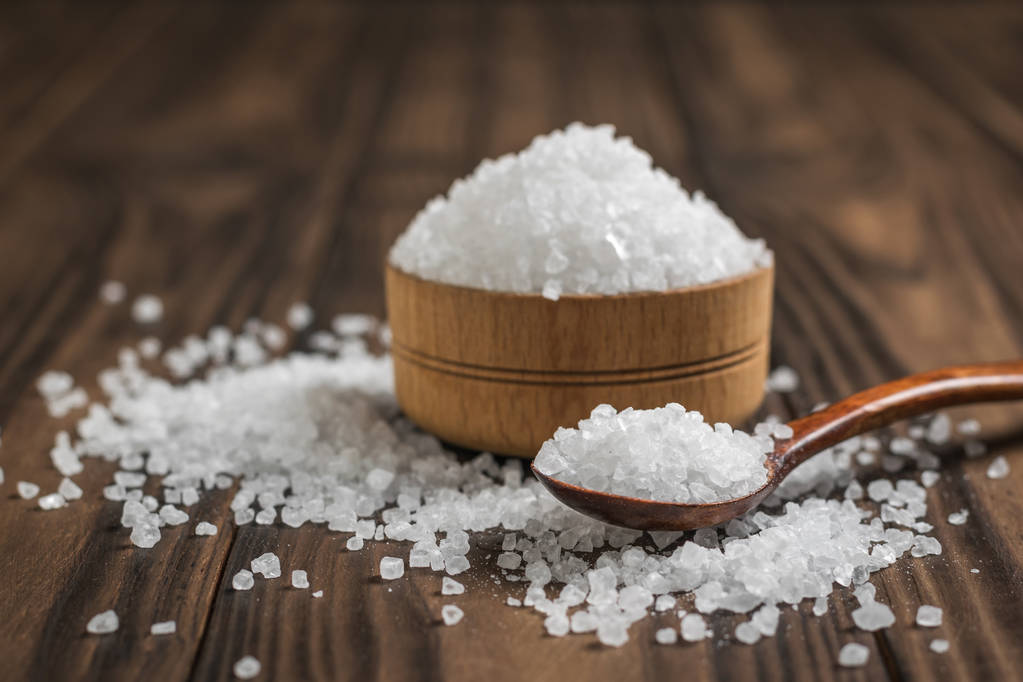Proteins are vital for the body and have many important tasks. An acute deficiency can quickly become harmful and thus trigger food cravings, muscle breakdown or mood swings.
Protein deficiency dangerous: The body needs proteins for this
Just like carbohydrates and fats, proteins also belong to the so-called macronutrients. Proteins are primarily used by humans as a source of energy. In addition, proteins are an important building material, with the help of which, among other things, cells and tissue, enzymes and hormones can be formed. The body must therefore be supplied with enough protein every day in order to function as well as possible. Animal and vegetable proteins can be ingested through food. Animal protein sources include fish, meat, milk, dairy products and eggs. Vegetable protein, on the other hand, is found in grain products, potatoes, legumes and nuts.
But how much protein should you consume every day? There is a rough reference value for this: “For adults, the reference value is derived using data from nitrogen balance studies. According to this, the recommended intake for 19 to 65 year olds is 0.8 g protein per kg body weight per day. This corresponds to 57 to 67 g protein per day . This amount can be achieved by eating protein-rich foods,” says the Federal Center for Nutrition. A reference value of 0.9 grams of protein per kg of body weight per day is assumed for children and adolescents, and around 1 gram of protein per kg of body weight per day for people over 65 years of age.
Since the human body needs proteins in many different places, a deficiency manifests itself in different ways. Insufficient protein intake can not only affect the body, but also the psyche.
This is how a lack of protein affects the body
Visual Appearance: Proteins play an essential role in many parts of the body. A deficiency can therefore also become apparent in various places: A protein deficiency can “promote the edges of the eyes and cause more wrinkles,” writes utopia.de. Brittle nails and a pale complexion are also possible signs.
Hair loss: Sufficient protein is essential for the hair, since our hair also consists of special proteins – so-called keratins. “If the body is not supplied with enough protein, the keratin formation necessary for hair growth suffers. Dry, brittle hair and hair loss can be the result.”
Atrophy of the muscles: A lack of proteins is easily noticeable in the muscles – they are broken down slowly. If the body doesn’t get enough protein, it uses its own stores – which in the case of proteins are mainly found in muscle tissue. Losing muscle mass is also accompanied by a loss of body weight.
Food cravings as a typical sign
Weak immune system: The immune system also suffers from a protein deficiency. Here the nutrient is urgently formed for the formation of antibodies that are used to fight pathogens. If the body can only produce insufficient defenses, the immune system is weakened – which leads to an easier susceptibility to infections.
Impaired wound healing: Impaired wound healing can also show a protein deficiency. If there are too few proteins in the body, wounds often heal more slowly because the damaged cells cannot be repaired or renewed as quickly as possible.
Cravings: Because proteins are harder for the body to digest, it takes longer for the body to use them. Proteins are responsible for a stable blood sugar level. “Without enough protein, blood sugar levels fluctuate wildly, leading to food cravings that often lead to excess calories and weight gain.”
A protein deficiency has these effects on the psyche
Mood swings: In addition to physical signs, psychological symptoms can also indicate a protein deficiency.
Mood swings are particularly typical. But a lack of concentration, exhaustion, tiredness and dissatisfaction are also common among those affected.
Depression: In extreme cases, a severe lack of protein can also cause serious mental illnesses such as depression.
Medical ad

vice important
Anyone who suspects that they are suffering from a protein deficiency should seek medical advice and a medical examination. The risks of an untreated deficiency include digestive problems or a weakening of the respiratory and heart muscles. In Germany, the deficiency occurs comparatively rarely, the daily protein requirement is usually exceeded. Therefore, caution is advised, because even a permanent excess of protein is not healthy.
It is often diseases such as eating disorders, gluten intolerance, a dysfunction of the thyroid gland or tuberculosis that promote a lack of proteins. Excessive alcohol consumption and drug abuse can also lead to this.
Resolving a protein deficiency depends entirely on the cause. “If illnesses are the trigger for the deficiency, you obviously have to treat them very differently than a deficiency caused by insufficient nutrition. If the protein deficiency is due to an eating disorder, you should talk to both your family doctor and a therapist.”




